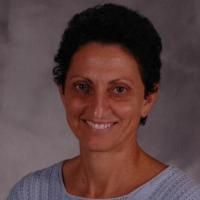Diet quality and exercise in older veterans with PTSD: a pilot study.
Date
2021-09-06
Journal Title
Journal ISSN
Volume Title
Repository Usage Stats
views
downloads
Citation Stats
Attention Stats
Abstract
Older veterans with posttraumatic stress disorder (PTSD) are at increased risk of obesity and cardiometabolic disease. Physical activity and healthy eating are two behaviors that impact health, functional independence, and disease risk in later life, yet few studies have examined the relationship between PTSD and diet quality. This secondary analysis aimed to: (a) characterize the diet quality of older veterans with PTSD in comparison to U.S. dietary guidelines and (b) explore if participation in a supervised exercise intervention spurred simultaneous changes in dietary behavior. Diet quality was assessed with the Dietary Screener Questionnaire (DSQ), which measures daily intake of fiber, calcium, added sugar, whole grain, dairy, and fruits/vegetables/legumes. The sample included 54 military veterans ≥ 60 years old with PTSD who participated in a randomized controlled pilot trial comparing 12 weeks of supervised exercise (n = 36) to wait-list usual care (n = 18). The DSQ was administered at baseline and 12 weeks. Consumption of added sugar exceeded U.S. dietary guideline recommendations and consumption of whole grains, fruits/vegetables/legumes, fiber, calcium, and dairy fell short. Participation in the supervised exercise intervention was not associated with changes in diet quality. Results revealed that the diet quality of older veterans with PTSD is poor, and while the exercise intervention improved health through exercise, it did not make veterans any more likely to adopt a more healthful diet. Interventions targeting diet, or diet + exercise, are needed to manage the increased risk of obesity and cardiometabolic disease present in older veterans with PTSD.
Type
Department
Description
Provenance
Subjects
Citation
Permalink
Published Version (Please cite this version)
Publication Info
Browne, Julia, Miriam C Morey, Jean C Beckham, Hayden B Bosworth, Kathryn N Porter Starr, Connie W Bales, Jessica McDermott, Richard Sloane, et al. (2021). Diet quality and exercise in older veterans with PTSD: a pilot study. Translational behavioral medicine. 10.1093/tbm/ibab116 Retrieved from https://hdl.handle.net/10161/23960.
This is constructed from limited available data and may be imprecise. To cite this article, please review & use the official citation provided by the journal.
Collections
Scholars@Duke

Miriam C. Morey
The general focus of Dr. Morey's work is exercise and aging. All of her research examines how physical activity, exercise training, or physical fitness influence the physical functioning and/or pyschosocial quality of life of older adults. She directs a supervised hospital-based program for older adults, which is used to examine longitudinally the effects of exercise training on the musculoskeletal, articular, and cardiorespiratory systems. Furthermore, she has a number of studies that examine how system-wide impairments serve as preclinical indicators of disability and overall decline in the quality of life of older adults. Ongoing studies examine the role of exercise training in attenuation or reversal of functional decline and examination of the effectivenes of different methods of physical activity counseling for home-based exercise.
Dr. Morey's research evolves directly from three sources: (1) primary analyses of clinical trials regarding the impact of exercise on a specific outcome, (2) longitudinal analyses of participants in ongoing clinical exercise programs, and (3) secondary analyses of clinical trials which involve exercise or physical activity.
Although physical activity and exercise are the interventions of interest in all of these studies, the outcomes of interest vary considerably. Within the broad domain of aging, Dr. Morey has examined the impact of exercise on physical performance, well-being, sleep quality, disability, and functional limitations. More recently, Dr. Morey has several studies focusing on the effect of tailored telephone physical activity counseling to improve function in elders. Specific studies are targeted to newly diagnosed cancer survivors, long-term cancer survivors, and frail elders in geriatric and primary care settings.
Dr. Morey's expertise is in the area of exercise physiology and aging. She has specific knowledge in age-related changes in cardiorespiratory functioning, the effects of habitual exercise (longitudinal) on performance, and exercise programming for older adults.
Key Words: Exercise, maximal oxygen uptake, cardiorespiratory fitness, aging, disability,
functional limitations, longitudinal

Jean Crowell Beckham
Interest in assessment and treatment of trauma, particularly as occurs for both women and men during military service; focus in treatment outcome of differential and collective contribution for psychopharmacological and behavioral interventions in PTSD populations; long term physical health effects of chronic posttraumatic stress disorder.

Hayden Barry Bosworth
Dr. Bosworth is a health services researcher and Deputy Director of the Center of Innovation to Accelerate Discovery and Practice Transformation (ADAPT) at the Durham VA Medical Center. He is also Vice Chair of Education and Professor of Population Health Sciences. He is also a Professor of Medicine, Psychiatry, and Nursing at Duke University Medical Center and Adjunct Professor in Health Policy and Administration at the School of Public Health at the University of North Carolina at Chapel Hill. His research interests comprise three overarching areas of research: 1) clinical research that provides knowledge for improving patients’ treatment adherence and self-management in chronic care; 2) translation research to improve access to quality of care; and 3) eliminate health care disparities.
Dr. Bosworth is the recipient of an American Heart Association established investigator award, the 2013 VA Undersecretary Award for Outstanding Achievement in Health Services Research (The annual award is the highest honor for VA health services researchers), and a VA Senior Career Scientist Award. In terms of self-management, Dr. Bosworth has expertise developing interventions to improve health behaviors related to hypertension, coronary artery disease, and depression, and has been developing and implementing tailored patient interventions to reduce the burden of other chronic diseases. These trials focus on motivating individuals to initiate health behaviors and sustaining them long term and use members of the healthcare team, particularly pharmacists and nurses. He has been the Principal Investigator of over 30 trials resulting in over 400 peer reviewed publications and four books. This work has been or is being implemented in multiple arenas including Medicaid of North Carolina, private payers, The United Kingdom National Health System Direct, Kaiser Health care system, and the Veterans Affairs.
Areas of Expertise: Health Behavior, Health Services Research, Implementation Science, Health Measurement, and Health Policy

Connie Watkins Bales
Research in our laboratory focuses on the role of nutrition (particularly vitamins and minerals) in the prevention and management of chronic diseases in older adults. Previous studies have concerned trace elements and cardiovascular disease, calcium and osteoporosis, and renal synthesis of vitamin D as it relates to bone health. Some of our newest work emphasizes the role of micronutrients as antioxidants and their interaction with the aging process. We are also working on various aspects of energy balance in older adults, ranging from failure to thrive in stroke patients with dysphagia to exercise and nutrition effects in overweight subjects who begin physical training. Thus we have a number of clinical and epidemiological projects on-going, many of which include a strong emphasis on nutrition assessment techniques in middle-aged and elderly subjects.
Jeffrey Gregg

Katherine Shepherd Hall
My research is focused on developing evidence-based physical activity interventions for older adults with an eye to preserving functional independence and quality of life. I am particularly interested in developing exercise programs to promote physical and psychological well-being among older veterans with posttraumatic stress disorder (PTSD).
Unless otherwise indicated, scholarly articles published by Duke faculty members are made available here with a CC-BY-NC (Creative Commons Attribution Non-Commercial) license, as enabled by the Duke Open Access Policy. If you wish to use the materials in ways not already permitted under CC-BY-NC, please consult the copyright owner. Other materials are made available here through the author’s grant of a non-exclusive license to make their work openly accessible.
